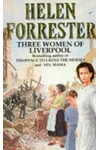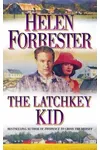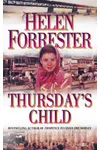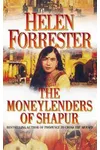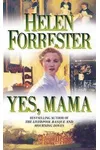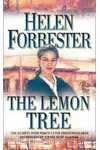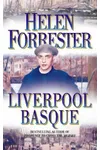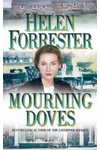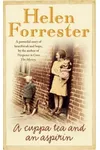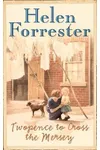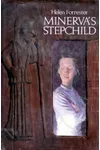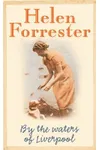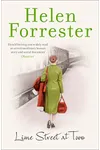Picture a young girl in 1930s Liverpool, scraping by in poverty, only to transform her struggles into stories that captivated millions—meet Helen Forrester! Born June Huband in 1919, this Anglo-Canadian author, writing under a pen name, turned her gritty childhood into the bestselling memoir Twopence to Cross the Mersey, a tale of resilience that still resonates today.
Forrester’s vivid storytelling brought working-class life to the forefront, blending raw honesty with heartwarming hope. Her work, spanning memoirs and novels, earned her honorary doctorates and a lasting legacy in British literature. Let’s dive into her remarkable journey!
The Making of Helen Forrester
Born in Hoylake, Cheshire, Helen Forrester faced a childhood upended by the Great Depression. When her middle-class parents went bankrupt, the family of nine was evicted and relocated to Liverpool, living in a single room. At just 12, Helen was pulled from school to care for her six siblings, a burden that shaped her empathetic voice. Her teenage years working for a Liverpool charity fueled her keen observations of community and survival, laying the groundwork for her writing career.
Despite personal tragedies—losing two fiancés in World War II—Helen’s determination shone through. She married physicist Avadh Bhatia in 1950, moving to India and later Canada, where she began writing in earnest. Her experiences across cultures enriched her narratives, making her a unique voice in literature.
Helen Forrester’s Unforgettable Stories
Forrester’s breakthrough came with Twopence to Cross the Mersey (1974), a memoir recounting her impoverished childhood. Its raw depiction of Liverpool’s slums, paired with her humor and humanity, struck a chord, selling millions and inspiring a musical. The book’s innovative use of dialogue, verified with her siblings, set a new standard for autobiographical storytelling.
She followed with three more memoirs—Liverpool Miss (1979), By the Waters of Liverpool (1981), and Lime Street at Two (1985)—chronicling her teenage years and wartime Liverpool. Her novels, like Liverpool Daisy (1979) and A Cuppa Tea and an Aspirin (2003), painted vivid portraits of working-class women, blending heartache with resilience. Forrester’s style, rooted in meticulous research and clear prose, made her stories both accessible and deeply moving.
Her time in India inspired novels like Thursday’s Child (1985) and The Moneylenders of Shahpur (1987), showcasing her versatility. Across her 16 books, Forrester’s themes of survival, community, and hope shone through, earning her a devoted readership.
Why Helen Forrester Matters
Helen Forrester’s work gave voice to the often-overlooked working class, particularly women, during a tumultuous era. Her memoirs sparked a genre of gritty, honest autobiographies, influencing writers to explore personal hardship with courage. The success of Twopence to Cross the Mersey as a musical and stage play underscores her cultural impact, bringing Liverpool’s history to new audiences.
Her legacy endures through honorary doctorates from the Universities of Liverpool (1988) and Alberta (1993), and a Blue Plaque unveiled in Hoylake in 2020. Forrester’s ability to transform pain into powerful storytelling continues to inspire readers worldwide.
About Helen Forrester
- Born: June 6, 1919, Hoylake, Cheshire
- Key Works: Twopence to Cross the Mersey, Liverpool Daisy, A Cuppa Tea and an Aspirin
- Awards: Honorary doctorates from University of Liverpool (1988), University of Alberta (1993)
- Died: November 24, 2011, Edmonton, Canada
Snag Twopence to Cross the Mersey and dive into Helen Forrester’s heartfelt world of resilience and hope!

